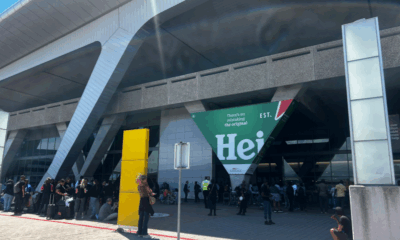News
KZN E Hailing Drivers Under Fire as Calls for Regulation Grow Louder

E-hailing drivers in KwaZulu-Natal are once again in the spotlight for all the wrong reasons. This week, two drivers were assaulted in KwaDabeka near Pinetown, with one of their vehicles shot at in broad daylight. The attacks, allegedly carried out by taxi drivers, have reignited concerns over the lack of protection for those working in the growing e-hailing sector.
A Long Road Without Rules
For Sipho Mabika, chairperson of the KZN E-hailing Council, the violence points to a bigger issue: South Africa’s painfully slow pace in regulating the industry. Although the National Land Transport Amendment Act was signed into law in 2024, it has yet to be fully enforced.
“We have been talking about this since 2018,” Mabika explained, recalling years of ignored memorandums and unanswered calls to government. “All these things are happening because regulation is not in place.”
The frustration is shared by drivers across the country. Many say they feel abandoned, operating in a grey zone between formal transport systems and the powerful taxi industry, which has long dominated commuter routes.
Echoes of Tragedy
The recent KwaDabeka attacks come just two weeks after the horrific killing of a young e-hailing driver at Maponya Mall in Soweto. He had barely started his job before being shot and burned to death in his car. For many, his death has become a tragic symbol of what happens when the state drags its feet on providing legal clarity and protection.
Voices from the Sector
In Gauteng, the Gauteng E-hailing Services (GES) has echoed KZN’s call for urgent reform. The group argues that regulation isn’t just about paperwork it’s about saving lives. “Proper regulation will help decrease criminality and exploitation,” the organisation said, pushing for accountability, unity, and stronger leadership across the public transport sector.
Public Frustration Boils Over
On social media, outrage has been swift. South Africans are asking how many more drivers must be attacked before decisive action is taken. One X (formerly Twitter) user wrote, “Government drags its feet while families bury breadwinners. How many lives must be lost?” Another added, “It’s 2025, why is regulation still pending after all these years?”
For many commuters, the issue hits home. E-hailing services have become an essential part of daily life, offering safer late-night travel, flexible payment options, and convenience in cities where traditional taxi routes fall short. The fear that these services could vanish under violent pressure has stirred wider public concern.
A Fight for the Future of Mobility
The battle between taxis and e-hailing isn’t new. Similar clashes have flared in Cape Town and Johannesburg, often leaving drivers caught in the crossfire. Yet the difference now, say industry leaders, is that the violence has escalated beyond sporadic turf wars into sustained threats against livelihoods.
Until the government delivers on its promise of regulation, e-hailing drivers remain at risk every time they accept a trip. And with communities increasingly reliant on these services, the stakes are no longer just about transport they’re about safety, dignity, and the right to work without fear.
Source:SABC News
Follow Joburg ETC on Facebook, Twitter , TikTok and Instagram
For more News in Johannesburg, visit joburgetc.com



























